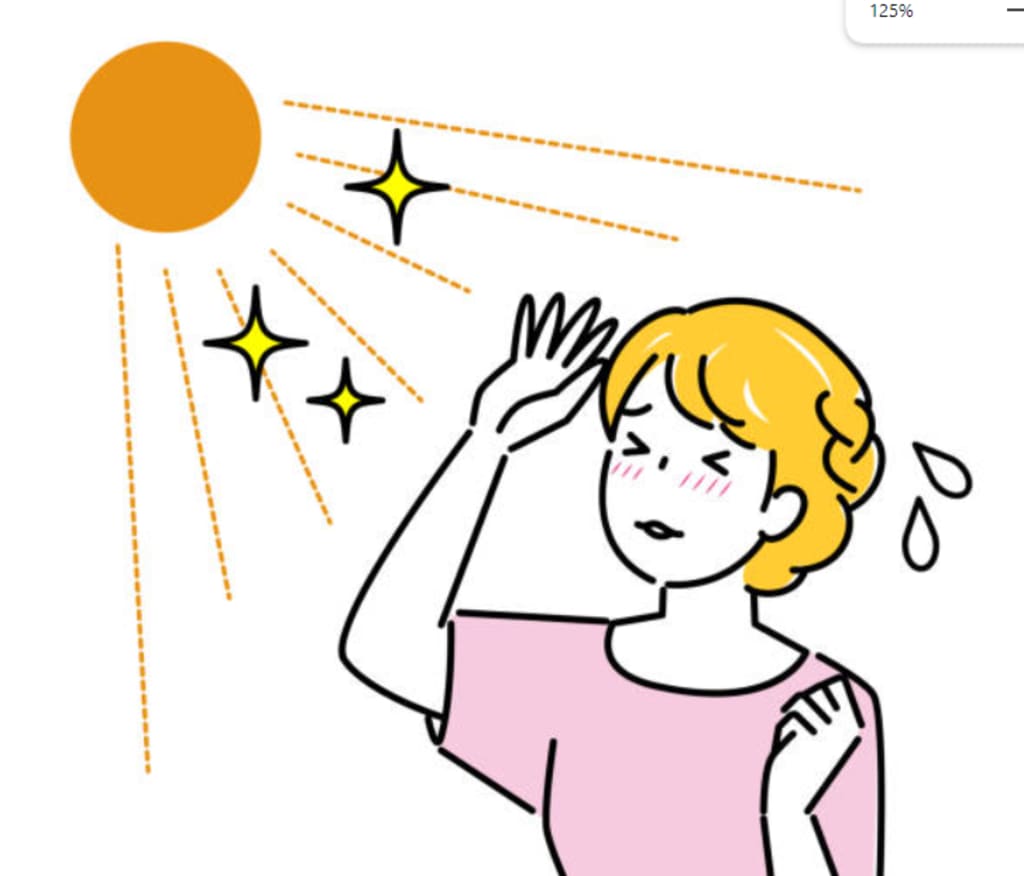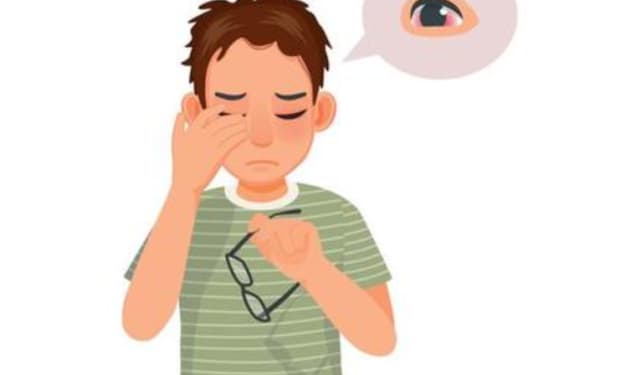Is sunlight good or bad for eyes
Protect Your Eyes From Sun Damage

**Is Sunlight Good or Bad for Eyes?**
Sunlight is often praised for its numerous health benefits, from boosting vitamin D production to improving mood. However, when it comes to eye health, the relationship with sunlight is more nuanced. Let's delve into whether sunlight is good or bad for your eyes.
**The Benefits of Sunlight for Eyes:**
1. **Vitamin D Synthesis:** Sunlight exposure helps the body produce vitamin D, which is crucial for overall health, including eye health. Vitamin D has been linked to a reduced risk of several eye conditions, such as macular degeneration.
2. **Regulation of Circadian Rhythms:** Sunlight exposure helps regulate the body's circadian rhythms, which can indirectly benefit eye health by improving sleep patterns and overall well-being.
3. **Mood Enhancement:** Natural sunlight boosts serotonin levels, which can elevate mood and reduce stress. This positive effect on mental health can indirectly support eye health by reducing strain and tension.
**The Risks of Sunlight for Eyes:**
1. **UV Radiation:** One of the primary concerns with excessive sunlight exposure is ultraviolet (UV) radiation. UV rays can damage various structures of the eye, including the cornea, lens, and retina. Prolonged exposure to UV rays is associated with an increased risk of cataracts and age-related macular degeneration.
2. **Photokeratitis:** This is essentially a sunburn of the cornea, which can occur after intense exposure to UV rays, particularly in environments like beaches or snowy areas where sunlight reflects off surfaces.
3. **Increased Risk for Certain Eye Conditions:** Individuals with certain eye conditions, such as ocular albinism or photosensitivity disorders, may be more susceptible to sunlight-related eye damage.
**Finding the Balance:**
While sunlight offers health benefits, including for eye health, it's essential to find a balance to protect your eyes:
- **Wear Sunglasses:** Opt for sunglasses that block 100% of UV rays to protect your eyes when outdoors, especially during peak sunlight hours.
- **Use Wide-brimmed Hats:** Pairing sunglasses with wide-brimmed hats can provide additional protection by reducing the amount of direct sunlight reaching your eyes.
- **Take Breaks Indoors:** If you spend extended periods in intense sunlight, take breaks indoors or in shaded areas to give your eyes a rest.
- **Regular Eye Exams:** Schedule regular eye exams to monitor your eye health and catch any potential issues early.
In conclusion, while sunlight is beneficial for overall health, including eye health through vitamin D production and mood enhancement, it's crucial to protect your eyes from UV radiation. By taking simple precautions like wearing sunglasses and hats, you can enjoy the benefits of sunlight while safeguarding your vision for years to come.**The Risks of Sunlight for Eyes: Understanding the Impact of UV Exposure**
While sunlight provides essential benefits like vitamin D synthesis and mood enhancement, its effects on eye health require careful consideration. Understanding the risks associated with sunlight exposure can help you protect your vision and maintain optimal eye health. Here’s a closer look at the potential risks of sunlight for your eyes:
**1. UV Radiation Damage:**
Sunlight emits ultraviolet (UV) radiation, which can be harmful to various parts of the eye. UV rays are categorized into UVA, UVB, and UVC rays, with UVA and UVB posing the most significant risks to eye health. Prolonged exposure to UV radiation can lead to:
- **Cataracts:** UV rays can contribute to the development of cataracts, a clouding of the eye's natural lens that impairs vision over time.
- **Macular Degeneration:** Age-related macular degeneration (AMD), a leading cause of vision loss in older adults, has been linked to cumulative UV exposure.
- **Pterygium:** Also known as surfer's eye, pterygium is a growth on the eye's surface that can result from UV exposure, causing irritation and affecting vision.
**2. Photokeratitis:**
Photokeratitis is a painful eye condition akin to sunburn, affecting the cornea due to intense exposure to UV rays. Symptoms include redness, tearing, sensitivity to light, and a gritty sensation in the eyes. While typically temporary, repeated episodes of photokeratitis can lead to long-term damage.
**3. Increased Risk for Skin Cancer around the Eyes:**
The delicate skin around the eyes is susceptible to skin cancers like basal cell carcinoma and squamous cell carcinoma, which can be exacerbated by UV exposure. Wearing UV-protective sunglasses not only shields the eyes but also protects the surrounding skin from harmful rays.
**4. Accelerated Aging of the Eyes:**
UV radiation can accelerate the aging process of the eyes, contributing to wrinkles and fine lines around the eyes, known as crow's feet. This cosmetic concern highlights the broader impact of UV exposure on eye health and appearance.
**Protecting Your Eyes from Sunlight:**
Despite these risks, you can take proactive steps to safeguard your eyes while enjoying time outdoors:
- **Wear Sunglasses:** Choose sunglasses that offer 100% UV protection and block both UVA and UVB rays. Look for labels indicating UV 400 protection, which blocks all wavelengths of UV radiation.
- **Use Broad-brimmed Hats:** Pairing sunglasses with a wide-brimmed hat provides additional protection by reducing the amount of direct sunlight reaching your eyes and face.
- **Limit Outdoor Exposure during Peak Hours:** Avoid prolonged outdoor activities during midday, when UV radiation is strongest.
- **Regular Eye Exams:** Schedule routine eye exams with an optometrist or ophthalmologist to monitor your eye health and detect early signs of UV-related damage.TheyaVue Reviews
**Conclusion:**
While sunlight offers health benefits, including mood enhancement and vitamin D synthesis, it's essential to balance these benefits with protective measures against UV radiation. By wearing proper eye protection and taking precautions during outdoor activities, you can minimize the risks associated with sunlight and preserve your vision for years to come. Prioritizing eye health ensures that you can enjoy the outdoors safely while safeguarding your long-term visual acuity.
About the Creator
peter
Content about cars, motorbikes, technology, news
Enjoyed the story? Support the Creator.
Subscribe for free to receive all their stories in your feed. You could also pledge your support or give them a one-off tip, letting them know you appreciate their work.






Comments
There are no comments for this story
Be the first to respond and start the conversation.